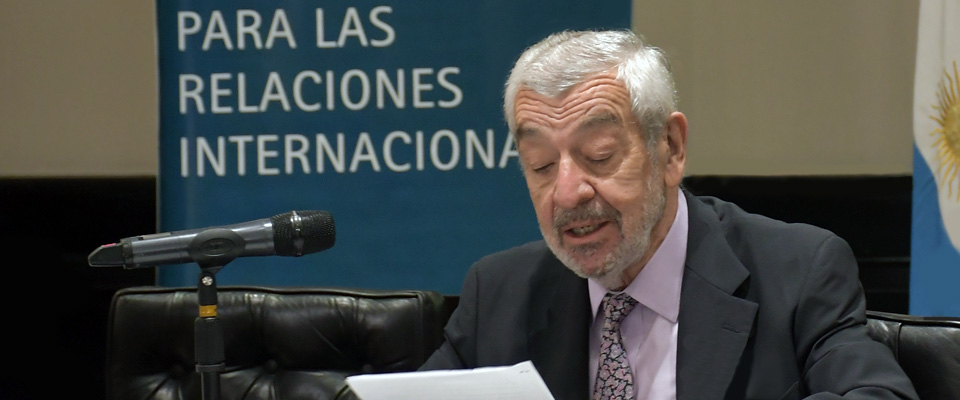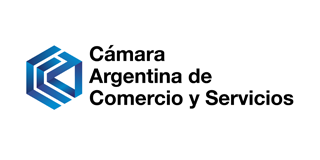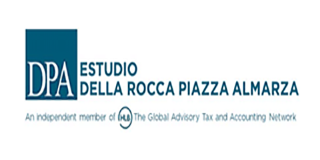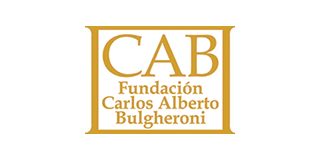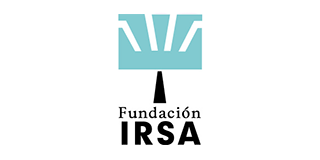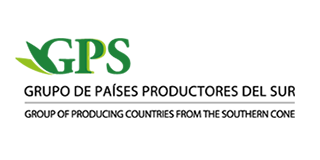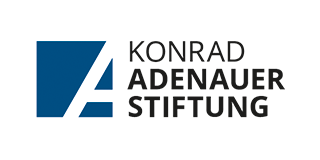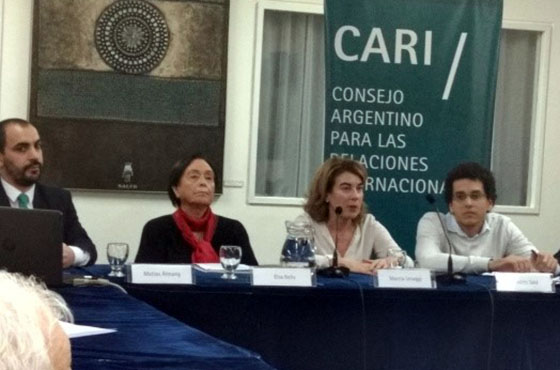
May 21, 2018
Academic session led by Marcia Levaggi, General Director of Environmental Issues in the Ministry of Foreign Relations and Worship, and organized by the CARI Environmental Studies Committee. Comments by Andrés Said and Matías Almang. Presentation and introductory words by Ambassador Elsa Kelly, Director of the Environmental Studies Committee
Written by Julieta Segarra
After the Paris Agreement, we´ve entered a transitional period regarding the work system
Two years after the Paris Agreement was ratified, CARI organized an academic session with focus on the negotiations of the agreement´s pending work program and its characteristics.
Marcia Levaggi, General Director of Environmental Issues in the Ministry of Foreign Relations and Worship, started the session by summarizing the Paris Agreement and its ratification. This agreement, she stated, binds states to regulate their carbon dioxide emissions so as to keep the global temperature rise since pre-industrial times lower than two degrees. Achieving such a change would drastically lower the effects of climate change. Nevertheless, the agreement came into action sooner than anticipated, since enough countries ratified it by 2016, which increased the pressure on the negotiations of the work program. This led Ms. Levaggi to claim that after the Paris Agreement, we´ve entered a transitional period regarding the work system.
Ms. Levaggi then detailed that the work program is a "roadmap" for countries to make decisions that will result in the Paris Agreement´s full implementation. The subjects of said program are mitigation, adaptation, implementation and world balance, all of which would start in 2023 so as to help with the agreement´s objectives. She then outlined the three bodies that negotiate the work program: the APA (ad hoc work group) and its two subsidiaries, the implementation branch (IBI) and the technologic and scientific one (SBSTA). The great need for coordination between bodies was then highlighted, since it´s key for the correct negotiation and implementation of the work program.
Later, advances on the reduction of emissions outside of the Paris Agreement were discussed, with special emphasis placed on the efforts of the Civil Aviation Association and the International Maritime Organization, both of which have adopted their own emission negotiation schemes in an effort to lower the local carbon levels. Argentinean participation was regarded as high in both instances, as well as in the effort made to adopt the Montreal Protocol. The country´s collaboration with Brazil and Uruguay in the work program´s negotiation and their active role in discussions were also addressed.
The Work Agreement should function in a transparent, non-contentious, non-punitive fashion
In conclusion, Ms. Levaggi explained the context in which the Paris Agreement was signed, naming French diplomats as one of the driving forces in negotiations and the multiple changes demanded by the Obama administration so as to avoid its rejection by the US congress. She also deemphasized the importance of the American withdrawal under Trump, stating that it is less significant when considering all the individual efforts of states that have already reduced their emissions.
After Marcia Levaggi´s presentation, Matías Almang, who received a postgraduate degree in law and climate change economy from FLACSO, referred to the components of the work agreement and their aim to advance in an even fashion. These aspects were listed as the same central themes proposed by the first speaker: mitigation, adaptation, implementation and balancing between developed and developing countries. They involve transparency mechanisms so as to ensure countries are following their Nationally Determined Contributions (NDC) and their progress is being registered and compared. The Paris Agreement also established that the work system should function in a transparent, non-contentious, non-punitive fashion. The work program will also include a system of reports on emissions, which will allow for comparisons between countries to check for correct implementation, as well as one on investment reports, to monitor developed countries and their commitment to aiding countries in development via investments.
Agriculture is essential for life, which makes the adaptation to climate change a fundamental need
Lastly, Andrés Said, advisor and specialist on climate change and the environment in the Ministry of Agro-industry, spoke on the importance of agriculture in climate change negotiations, claiming that agriculture is essential for life, which makes the adaptation to climate change a fundamental need. He referred to the way SBSTA and SBI have approached the topic, which in the future will deal with a list of relevant aspects that need to be jointly discussed. In this way, a key component of the agreement, especially relevant to the Argentina given its economic model and the amount of people who depend on its production, is being developed with special consideration in the session´s main theme, the Paris Agreement.
Marcia LevaggiGeneral Director of Environmental Issues in the Ministry of Foreign Relations and Worship
Matías AlmangHonors degree in International Relations (UCA) and postgraduate degree in law and climate change economy (FLACSO)
Andrés SaidAdvisor and Specialist on climate change and environment in the Ministry of Agro-industry
